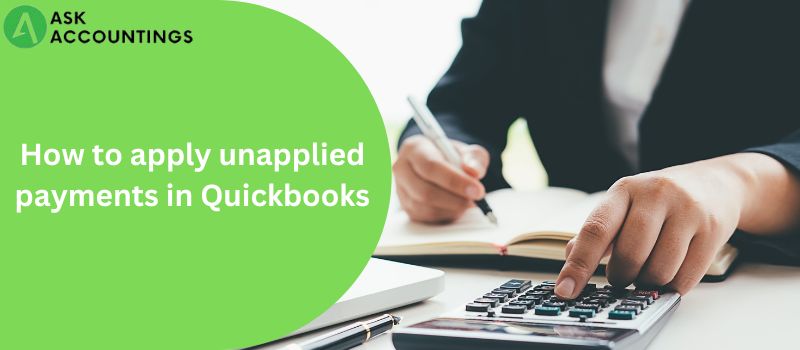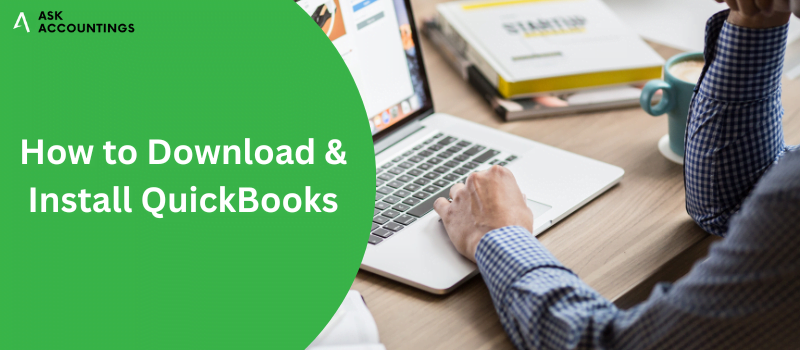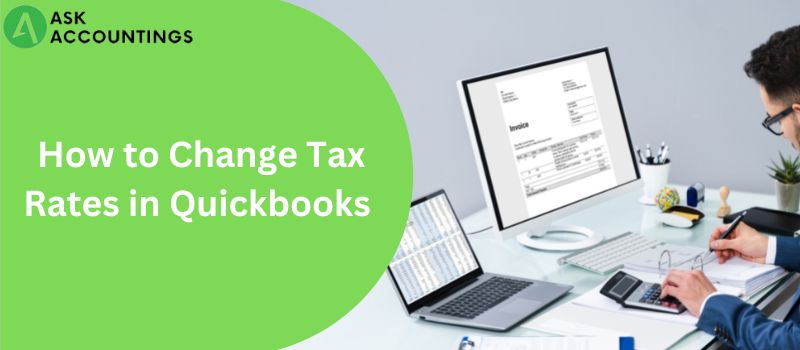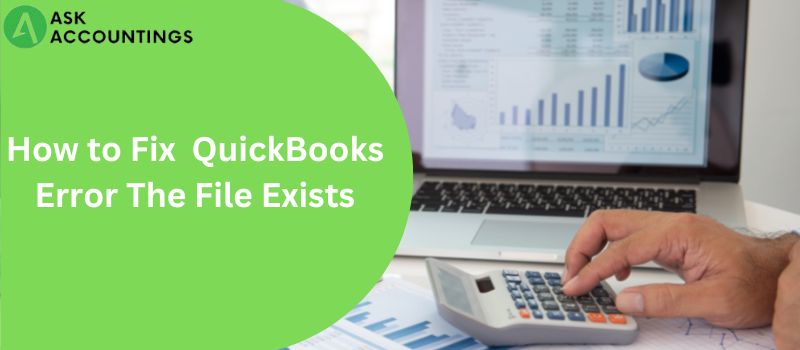Bookkeepers rely heavily on QuickBooks when clients make payments but fail to match the corresponding entries in their accounts payable. Discover where your costs have gone missing in QuickBooks. Unapplied fees have been received but are not linked to an associated invoice.
What are Unapplied Payments in my QuickBooks Account?
An “unapplied payment” is a payment that has been accepted but not yet associated with a specific invoice. The phrase “Unapplied Payment” describes a transaction that should have been recorded in the accounts payable ledger but was instead recorded in a separate register.
Why Does QuickBooks Show Unapplied Payments?
It can be confusing if QuickBooks shows unapplied costs after a credit memo, journal entry, and other payments. QuickBooks unapplied payments may result from the following:
- Credit memos without invoices may result in unapplied prices.
- Unlined journal entries may cause unapplied charges.
- Non-Invoice Payments may cause unapplied money.
Thus, QuickBooks will show credit memos, journal entries, and other payment methods as “unapplied” if they are not linked to the relevant Invoice.
How to apply for unapplied payments on QuickBooks desktop?
- The invoice function can be accessed by clicking Customers > Create (+) > Invoice.
- All fields must be filled out for the Unapplied Payment to match the Invoice.
- Save your changes.
- Get paid by hitting the “Receive Payment” button on the top right.
- First, go to your account’s Credits page and click the Unapplied Payment link.
- Click Save and Close.
What is the best way to clear up QuickBooks of unapplied payments?
- Select Clients from the Sales submenu.
- Pick the name of the client who is ordering.
- To do this, go to the Payment tab in the Transaction List.
- Select the “More” link below.
- Select Delete, then confirm with Yes.
In QuickBooks Online, how can people reconcile payments that have not been applied?
- Click the Report option.
- You should check out the Sales and Clientele section down below.
- To view a list of all the purchases made by each individual client, open the “Transaction List by Client” report.
- Click the settings button to make modifications.
- Simply mark the appropriate box under “This Year” for the reporting time frame.
Why are there cash payments in QuickBooks that haven’t been applied?
Usually, this account is created when a customer pays before an invoice is due. QuickBooks will record the transaction when this occurs by adding the amount to the Unapplied Cash Payment Income account. It might also happen if a customer’s payment wasn’t correctly added to their Invoice.
In QuickBooks, how do I get rid of duplicate payments?
In this method:
- Activate the Reports menu.
- Deposit Detail should be entered into the “Find report by the name” field.
- Include details about the time frame for which you’re providing this report.
- Once you’re ready, select the Run Report option.
- To fix a duplicate deposit, click on it twice.
- Tap the “More” button.
- Use the delete key to get rid of something.
- For confirmation, please select Yes.
QuickBooks: How to correct unapplied customer payments and credits?
You are reviewing Your Accounts online utility for adjusting unutilized supplier refunds and credits.
- You can access QuickBooks Desktop Help by clicking the Help menu.
- Use the form below to ask us questions.
- Advise them that changes must be made to the payroll log.
- After deciding if you want a callback, click Continue.
When working in QuickBooks, how can I remove an invoice?
- All Sales can be viewed by clicking the Sales menu item.
- Money received can be filtered by clicking the button.
- Pick the repayment you wish to cancel.
- Make your way to More, then Delete.
- We’ve canceled the payment you made.
Can you explain the distinction between unallocated funds and untraceable funds?
A purchase order without customer data is practical. Unapplied: You receive a check and can identify the source (Customer), but you do not allocate the funds to the correct Invoice. The sale’s Invoice may be missing, invalid, or unrecognized.
What would be the reason for unapplied cash?
There are primarily two sources of unexpected cash payments: Dates on the customer’s Invoice that are past the customer’s expense due date—unapplied payments on customer invoices.
How to Track Down Missing Payments in QuickBooks A/R Aging Online
Follow these instructions to locate unclassified payments in your online QuickBooks A/R ageing account:
- QuickBooks’s Customer Center page must be opened,
- You must access the Customer file immediately.
- Check the customer’s order history to see whether there are any unapplied payments.
- Look for a menu item labeled “Received Payments” and choose it.
- QuickBooks may automatically open the Received Payments tab and post the payment against the Invoice.
- Carefully review the Invoice’s line items. Before making any adjustments, check for unused credit.
- The sum associated with the transaction will show up as $0.
- Select the “Save” button to keep your alterations.
- You can close the tab if you’ve finished making edits and saving them.
Discover Unused Payments in QuickBooks Pro, Premier, and Enterprise
Here are the ways to locate unapplied payments in QuickBooks Enterprise, QuickBooks Premiers, or QuickBooks Pro:
- First, launch QuickBooks on your computer, then navigate to the Customers tab.
- To start getting paid, you need to go to Settings and Payments.
- Input the names of the customers who have payments waiting to be applied.
- Select the Discount and Credits button to bring up the Discount window.
- Unused invoice credits are now available for use. With QuickBooks, the credit balance is organized mechanically.
- Next, examine the Invoice thoroughly by paying close attention to its line items. Before committing any changes, double-check that no other unused credit amounts remain.
- At this stage, no monetary amount will be displayed for the transaction.
- Select the Save option to apply the modifications immediately.
- If you’re through making edits, you can exit the window by selecting the Close button.
QuickBooks Check writing and Bill Entry
- To do this, go to the Banking section of the homepage and then select Write Checks.
- Select the appropriate checking or savings account from the Bank Account drop-down menu in the Write Checks dialogue box.
- Paying a vendor is as simple as selecting their name from the check’s Pay to the Order of menu.
What gives if you have a negative amount of unapplied cash payment income?
If you’ve already written checks to your suppliers but haven’t yet utilized them to pay your bills, you can record the Cash Basis expense using this method. The same thing can happen if an account needs to be made for a credit card amount. In no case will this be used as-is on a sales or purchase order.
When an invoice is voided in QuickBooks, what happens?
A voided invoice retains the invoice number and will be included in reporting, but the amounts will be updated to reflect zero. It is unnecessary to create a new customer record if you need to change existing information, such as the customer’s email or billing address. The bill will be updated mechanically on your behalf.
In QuickBooks, how can you use a credit that I have not yet used?
Payment credit that has not yet been used
- Press Ctrl + H to see your purchase history.
- Double-click a discount to an invoice and select the appropriate option from the context menu to apply it.
- In the Applied Credits Before window, deselect the option to receive credit.
- Press the button labeled “Done” on the Apply Credits window.
- To finalize the Invoice, you must first click the Save and Close buttons.
Conclusion
Most clients no longer pay with cash or checks. These days, it’s not uncommon to make a purchase and pay for it entirely online. The purpose of QuickBooks Payments is to facilitate rapid and straightforward customer payments.
Also Read: How To Reprint checks in QuickBooks
Also Read: How to Fix QuickBooks Error The File Exists?



